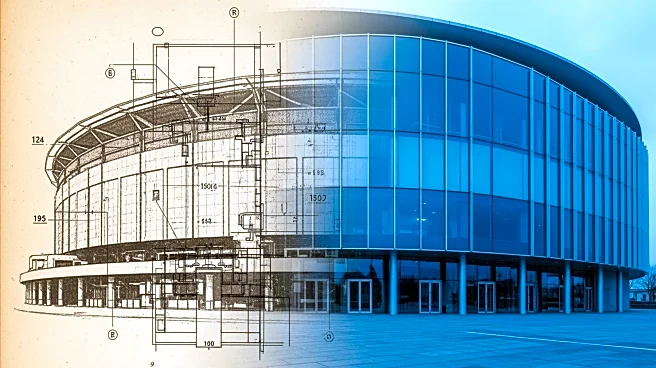What is the story about?
What's Happening?
The Nobel Prize in Physics has been awarded to Briton John Clarke, Frenchman Michel Devoret, and American John Martinis for their groundbreaking work in quantum mechanical tunnelling. Their research has enabled significant advancements in digital technology, including quantum cryptography, quantum computers, and quantum sensors. The Nobel jury highlighted the importance of their work in bringing quantum mechanics into practical applications, which has laid the foundation for modern digital technology. The phenomenon of quantum tunnelling, where particles pass through barriers at a quantum level, was demonstrated on a macroscopic scale using superconductors by the trio in the 1980s. This achievement has been recognized as a pivotal moment in the development of quantum technology.
Why It's Important?
The recognition of Clarke, Devoret, and Martinis underscores the critical role of quantum mechanics in the evolution of digital technology. Their work has facilitated the development of technologies that are integral to modern communication and computing systems. Quantum tunnelling has applications in various fields, including secure communications and advanced computing, which are essential for technological progress and economic growth. The award highlights the importance of continued investment in basic science research, which can lead to transformative innovations. The U.S. has historically been a leader in scientific research, but recent budget cuts have raised concerns about maintaining this edge.
What's Next?
The Nobel Prize ceremony will take place on December 10, where the laureates will receive their awards. The recognition may spur further interest and investment in quantum technology research, potentially leading to new breakthroughs. As the U.S. faces budget cuts in science programs, there may be increased advocacy for reversing these cuts to sustain scientific leadership. The award could also inspire young scientists and researchers to pursue careers in quantum physics and related fields, contributing to the future of digital technology.
Beyond the Headlines
The award highlights the phenomenon of 'brain drain,' where talented scientists move to countries with better research opportunities. Michel Devoret's move to the U.S. exemplifies this trend, which may be shifting with new administrative policies. The recognition of quantum tunnelling's impact on everyday technology, such as mobile phones, emphasizes the often-overlooked connection between fundamental research and practical applications. This underscores the ethical responsibility of governments to support scientific research that can lead to societal advancements.
















